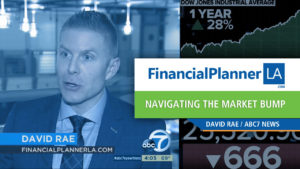
Are Financial Habits Contagious? Are you picking up the financial behavior of your friends? Will your friends help you improve your money mojo? Social contagion is all the news. Studies show that kindness, anger, and even obesity are ‘catching’ between friends and associates. Do money matters work the same way? In other words are Financial Habits Contagious?
By David Rae Certified Financial Planner™, Accredited Investment Fiduciary™
What do you think, Are Financial Habits Contagious? Here are my thoughts:
Have you ever compared yourself financially to what (you think) is going on with your friends, loved ones, or coworkers? I’ve just finished reading Contagious by Jonah Berger, a terrific book that talks about why things catch on in our media-saturated society. Berger brings up some excellent points that also apply to how folks handle their finances. Are financial habits contagious? Yes, they are.

When people come to me to help them design a financial plan, I help them with smart financial strategies to help reach those goals faster and easier. I don’t really think they’re catching financial acumen from me, as it happens. Instead, I hope they can learn from me not to let their background and peer group derail them from making smart financial decisions with their own hopes, dreams, and goals in mind.
Who you spend time with, who raised you, and where you work can all affect your attitudes and actions about money. I don’t just mean good or bad financial decisions, but what choices you make as to where to live, what car to drive, and what to do with your leisure time (if you even have leisure time).
Updated: Jonah Berger has a new book out called The Catalyst: How To Change Anyones Mind.
So, inspired by Contagious, let’s take a look at the question:
Are Financial Habits Contagious?
Social Proof – This one has a strong draw on many people. If all your friends have shelled out $160,000 for a top-of-the-line BMW, then it’s normal to want to have one, right? Personally, I’m not here to debate the “value” of a BMW, but even if I can “afford” it, no way I’m shelling out that much on a car at this point. For me, that money is much better spent elsewhere. While a fabulous ride is an extreme example, for others it may come down to whether to fork over extra money on special rims or upgraded seats. Are you doing it because you really want these things, or because all your friends are doing it?
For more on the Cost versus Value: Check out When is Toilet Paper Priceless? Havana Adventure Exposed true Toilet Paper Value
Visibility of Financial Habits Los Angeles and Beyond
What’s more exciting, buying that $160,000 car and watching restaurant valets hyperventilate in admiration, or putting away $160,000 for some financial goal? There isn’t a right or wrong answer here, but which of these two options is more likely to be noticed by the people around you? While others see your new wheels parked in front of your fabulous house, they don’t generally get a gander at your net worth statement. So when it comes to status, the car wins every time, hands down.
But the catch is that with visibility, many “bad” financial decisions will generate positive reinforcement from those around you. In contrast, good financial decisions will, and should, go unnoticed by your friends. Looks are deceiving. That friend who just financed his luxurious new BMW may, in reality, be up to his ears in debt. (If he happens not to have stellar credit, his interest rate may also be sky high.) While you pull up in your more affordable car looking “poor” – and hey, everything’s relative, who’s actually going to say you look poverty-stricken if you bought your car for the low, low bargain basement price of 50 grand instead? – Your money is hopefully stashed away somewhere, and it is appreciating in value.

Psychology of Imitation –
There’s ‘monkey see, monkey do’ which all too often turns into ‘money see, money do’ (which for big spenders then devolves into ‘money see, money due’ but I digress). We often get sucked into the habits of the people around us. In Contagious, Berger contends, “People are more likely to vote if their spouse votes, more likely to quit smoking if their friends quit, and more likely to get fat if their friends become obese. Whether making trivial choices like what brand of coffee to buy . . . people tend to conform to what others are doing.”
Related: Going Broke at Coachella to See Beyonce Perform
On a positive note for Financial Habits Contagion:
I think many people take the initial steps to get their financial houses in order after hearing about their friends starting the process. Once a couple of people in a group get excited about getting their financial roadmaps, they often talk about their progress to all their friends. Some cotton to the idea of a fabulous financial planner doing the heavy lifting, which helps people get over the tendency to procrastinate, and make the first steps right away. Others take a little longer and reach out for guidance after hearing repeatedly from five or six friends about how excited they are to be working with a Fiduciary Financial Planner.
I’m always curious how many of my Advocate Magazine Columns, Forbes.com posts, or TV appearances it takes before they reach out and give me a call or drop me an email? Some read one, and I’m sure some read 20. The important thing is to keep improving and to get moving as soon as possible. Better late than never, right?

Power of Observability – Financial Habits are Contagious
Not all problems are created equally. My very successful friend, let’s call him Joe Amazoft, sold his tech startup and bought a lot in the Hollywood Hills. Flush with millions of dollars worth of Stock Options, he hired an A-list celebrity architect and proceeded to build his dream home, top of the line, everything. Every amenity you didn’t even know you needed was included, like separate cellars for red and white wine, for example. He loved the house and hosted a bunch of parties to share his excitement with his friends.
The place was even photographed and featured in Architectural Digest. But this is where Joe’s love affair with the house began to deteriorate. Sure, it was amazing, and Joe had arguably the nicest house among his extended social group. But suddenly, after it was featured in A.D., his dream home was now playing in the big leagues, which meant that he was not necessarily the clear winner as the nicest, or most expensive, digs in the issue.
Joe caught the bug that ‘more is more’, a soul-destroying treadmill at best. He learned the hard way that not only bigger isn’t necessarily better but better may not necessarily be better either. Someone always has a nice house, car, yacht, or plane. Heck, these days we have billionaires with rocket ships……
The Bottom Line: Contagious Financial Habits
You probably heard, “If all your friends jumped off a cliff, would you?” enough from your parents growing up, right? Well, now you’re going to hear it from me. Do what is right for you. An affordable mortgage for your friend has nothing to do with what makes sense for you, your financial situation or your goals.
Unfortunately, many of the trappings of wealth, cars, clothing, travel, Instagram photos, or glamorous snaps have no real value when it actually comes to feeling secure financially. Chasing down the Joneses, or even worse, trying to beat the Joneses, is a great way to never be happy or in good financial shape.
That means you’ll want to be careful of which of your friends you look to as financial role models. The one thing I’ve learned about $160,000 cars is that they’re not just capable of accelerating you over the proverbial financial cliff; they can drive you there even faster. Remember, Financial habits ARE CONTAGIOUS.
Live for Today, Save for Tomorrow.

Until next time, and as always, Be Fiscally Fabulous, and remember Your Money Matters.
DAVID RAE, CFP®, AIF®, is a Los Angeles-based Wealth Manager with DRM Wealth Management. He has been helping people reach their financial goals for over a decade. Follow him on Facebook or via his website www.davidraefp.com

If you liked Financial Habit Contagious Los Angeles, you may also like:









[…] a case or interview a witness. Take this to heart when preparing for your future. Having a ‘financial’ plan in place can sure help make it a bit easier to know what you should be doing to reach your specific […]
[…] study showed that many Americans have improved their financial habits during the Coronavirus. Whether those habits will be maintained post-COVID is another […]
[…] study showed that many Americans have improved their financial habits during the Coronavirus. Whether those habits will be maintained post-COVID is another question. […]
[…] study showed that many Americans have improved their financial habits during the Coronavirus. Whether those habits will be maintained post-COVID is another question. […]
[…] study showed that many Americans have improved their financial habits during the Coronavirus. Whether those habits will be maintained post-COVID is another […]
[…] study showed that many Americans have improved their financial habits during the Coronavirus. Whether those habits will be maintained post-COVID is another […]
[…] study showed that many Americans have improved their financial habits during the Coronavirus. Whether those habits will be maintained post-COVID is another […]
[…] study showed that many Americans have improved their financial habits during the Coronavirus. Whether those habits will be maintained post-COVID is another […]
[…] study showed that many Americans have improved their financial habits during the Coronavirus. Whether those habits will be maintained post-COVID is another […]
[…] Planner David Rae frequently references and pop culture to illustrate how money, attitude, and behavior influence each other, whether for good and for ill. David Rae is no stranger in front of the camera either, […]
[…] that becoming ‘millionaire’ (that was then, ‘multimillionaire’ is more now) is more about smart financial habits than just making a ton of […]
[…] who casually grabs a $200 pair of shoes and tells you, “Just get them! You only live once”? Some people treat spending like a sport, and their habits can be contagious, as stated by Financial … Even if you weren’t planning to buy anything, being around big spenders can make it harder to […]